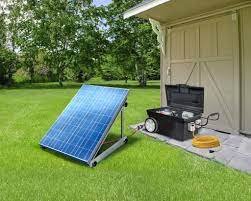
Breaking News
 Panic sets in as revealing map shows only SEVEN metro areas across the entire United States...
Panic sets in as revealing map shows only SEVEN metro areas across the entire United States...
 White House Amplifies Shocking Claims Of US Super Soldiers Deployed In Maduro Raid
White House Amplifies Shocking Claims Of US Super Soldiers Deployed In Maduro Raid
 Contrasting Chinese and US power plays in Venezuela and beyond
Contrasting Chinese and US power plays in Venezuela and beyond
 Why You Shouldn't Believe In A Full-Spectrum Crash
Why You Shouldn't Believe In A Full-Spectrum Crash
Top Tech News
 Superheat Unveils the H1: A Revolutionary Bitcoin-Mining Water Heater at CES 2026
Superheat Unveils the H1: A Revolutionary Bitcoin-Mining Water Heater at CES 2026
 World's most powerful hypergravity machine is 1,900X stronger than Earth
World's most powerful hypergravity machine is 1,900X stronger than Earth
 New battery idea gets lots of power out of unusual sulfur chemistry
New battery idea gets lots of power out of unusual sulfur chemistry
 Anti-Aging Drug Regrows Knee Cartilage in Major Breakthrough That Could End Knee Replacements
Anti-Aging Drug Regrows Knee Cartilage in Major Breakthrough That Could End Knee Replacements
 Scientists say recent advances in Quantum Entanglement...
Scientists say recent advances in Quantum Entanglement...
 Solid-State Batteries Are In 'Trailblazer' Mode. What's Holding Them Up?
Solid-State Batteries Are In 'Trailblazer' Mode. What's Holding Them Up?
 US Farmers Began Using Chemical Fertilizer After WW2. Comfrey Is a Natural Super Fertilizer
US Farmers Began Using Chemical Fertilizer After WW2. Comfrey Is a Natural Super Fertilizer
 Kawasaki's four-legged robot-horse vehicle is going into production
Kawasaki's four-legged robot-horse vehicle is going into production
 The First Production All-Solid-State Battery Is Here, And It Promises 5-Minute Charging
The First Production All-Solid-State Battery Is Here, And It Promises 5-Minute Charging
Build Your Own Solar-Powered Backup System

While generators make a lot of sense in an emergency situation, they do have some tactical downsides. First of all, most generators are relatively loud when they are running, and when coupled with a grid-down situation in which everything around happens to be very silent because the power's out, you can see how being loud is a disadvantage. Essentially, everyone within a two-mile radius will hear your generator. Perhaps they will come inquiring as to why it is that you're so well-prepared while they aren't. Additionally, there is the problem of fueling that generator; you need to have adequate stores of gasoline, diesel or propane, and not only that, you need to have oil and filters to provide the necessary oil changes, which increase in frequency the more you run the generator.
Solar Power
Did you know, however, that you can devise a simple solar panel system for use during emergencies? It's totally possible to set up a few panels in a freestanding system, coupled with a modest battery bank, so that you can generate at least some power during a grid-down situation. Although a handful of solar panels won't generate the same amount of power as a large generator, they can still be used to power things like laptops, communications devices, and medical equipment so that you aren't totally hung out to dry when the power goes off. Additionally, an emergency solar power system is totally silent, so no one will even know you have emergency power. Here's how to build a simple system:

 Storage doesn't get much cheaper than this
Storage doesn't get much cheaper than this

